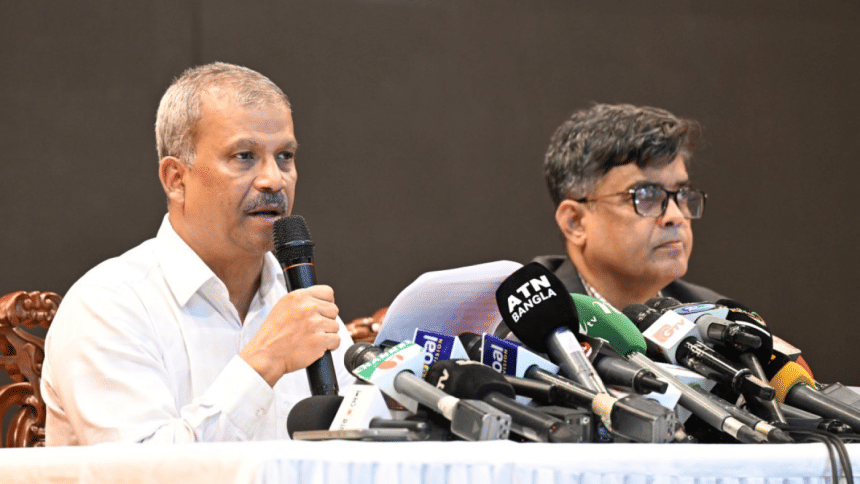The Anti-Corruption Commission (ACC) is set to receive sweeping new powers under a proposed ordinance that will allow it to investigate corruption by Bangladeshi citizens, both at home and abroad, as well as by foreign nationals residing in the country.
The draft Anti-Corruption Commission Ordinance, 2025, received in-principle approval today at a meeting of the Advisory Council chaired by Chief Adviser Prof Dr Muhammad Yunus.
Law Adviser Asif Nazrul, briefing reporters at the Foreign Service Academy after the meeting, said the commission will now be able to pursue allegations against anyone living in Bangladesh, regardless of nationality, and will also have the authority to investigate Bangladeshi citizens if evidence of corruption abroad is found.
While the scope of the commission has been broadened, Nazrul noted that the mechanisms for conducting investigations overseas are yet to be detailed and will be clarified once the law is finalised.
The draft ordinance introduces several amendments and definitions aimed at strengthening the ACC's capacity. Asif Nazrul said, "The draft ordinance defines 'known income' as lawful income, not unlawful. These issues have been clarified. It also includes provisions to establish special courts in areas where the ACC has offices. Additionally, the commission's functions and powers have been expanded -- covering case filing, investigation, and inquiry."
It also outlines the process for forming the commission, with a seven-member selection committee headed by a Supreme Court Appellate Division judge tasked with appointing the ACC chairperson and commissioners. "The committee will select candidates through public notice, and may also choose candidates at their own discretion. Interviews will be conducted with those interested in becoming commissioners," he explained.
Addressing concerns about corruption within the ACC, Nazrul said the issue was discussed with urgency at the meeting. He acknowledged that while the commission's mandate is to fight corruption, allegations have also been raised against its own officials. He stressed that internal accountability mechanisms must be strengthened before the ordinance is finalised.
Nazrul expressed hope that the new law would enhance transparency, accountability, and efficiency in the ACC's operations. "We want the ACC to truly earn public trust in combating corruption," he added.
When approached, Executive Director of Transparency International Bangladesh, Dr Iftekaruzzaman, said, "The Law Adviser's comments sound encouraging. But I wouldn't comment any further before fully reviewing the approved draft Ordinance if and when available. All I would say is that the government has done it without involving the ACC Reform Commission. Our request to share the draft before Cabinet approval has been summarily denied, which is disappointing. An unofficial version of the draft shows that significant recommendations of the ACC Reform Commission have been arbitrarily undermined."
"It is particularly frustrating because we have no idea if, in exercising their discretion, the Government took into consideration the fact that in nearly all items of ACC Reform Commission's recommendations related to amendment of the Act, there is nearly complete consensus of political parties about which the Government was specifically informed. It is embarrassing that the Government has followed the same practice of unilateralism and secrecy as the fallen authoritarian regime," he added.
Many of the provisions in the draft ordinance reflect recommendations made earlier this year by the ACC Reform Commission, led by Dr Iftekaruzzaman, which submitted its report to the chief adviser on January 15.

